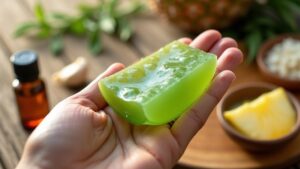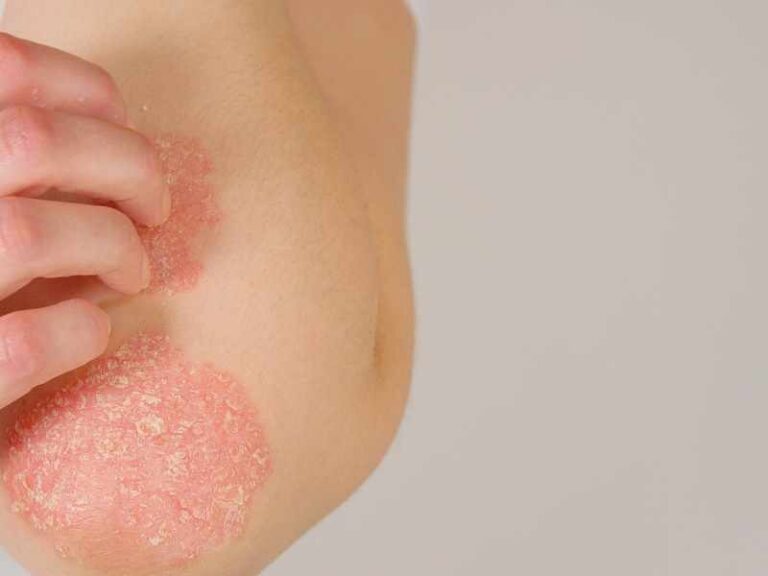You may consider skin cancers and warts are stubborn, but nature offers surprising ways to fight them without harsh treatments. In case you’re looking for gentler options, you’re not alone—many people turn to natural methods that work with your body instead of against it. From powerful essential oils to simple household ingredients, these remedies can help shrink or even remove unwanted growths. Curious which ones could benefit you? Let’s investigate five effective approaches.
Essential Oils for Skin Cancer and Wart Treatment
Tea tree oil’s antimicrobial properties can shrink warts linked to HPV upon being applied daily, with some seeing results in under two weeks. Oregano oil, packed with carvacrol, fights viruses and could help your body resist wart-causing infections.
For skin conditions like lesions or precancerous cells, frankincense oil might slow abnormal growth, though more research is needed. Lavender oil soothes irritation and supports healing, making it a calming addition to your routine.
Always dilute these oils with a carrier oil to prevent skin reactions—safety matters as much as results. Keep in mind, consistency is key while using natural remedies.
Acidic Substances to Break Down Abnormal Skin Growths
Should you be handling stubborn warts or unusual skin growths, acidic substances could provide a surprising solution—just like they assist in dissolving tough stains, they can work on abnormal skin cells too.
Apple cider vinegar, for example, mimics salicylic acid’s ability to dismantle warts while its antimicrobial properties target HPV. Dilute it with water to avoid irritation and apply it for a few hours daily.
Garlic, another potent acidic remedy, contains compounds that fight infections and can clear warts in weeks. Crushed vitamin C mixed with water can support natural healing by boosting immunity against HPV.
Even pineapple’s fruit acids help by exfoliating dead skin and smoothing growths. Recall, consistency is key—these methods work gradually but safely.
Herbal Remedies for Skin Health
Several herbal remedies can help tackle skin issues like warts and abnormal growths—naturally and gently.
Garlic, with its strong antimicrobial properties, might eliminate warts upon application as a paste. Apple cider vinegar, diluted, acts like a natural treatment by fighting HPV.
Dandelion weed sap, though less common, contains compounds that target infections. Aloe vera soothes while its gel works against viruses causing warts.
Tea tree oil, mixed with a carrier oil, can slowly reduce warts thanks to its antimicrobial strength.
These herbal remedies offer gentle alternatives, but consistency matters. You’ll need patience—some take weeks to show results. Always patch-test initially to avoid irritation.
Nature’s solutions won’t work overnight, but they’re kinder to your skin health than harsh chemicals.
Protective Covering Techniques for Healing
Should you be addressing warts or minor skin concerns, using the right protective coverings can make a big difference in healing. The right coverings create a moist environment, which helps soften wart tissue and speeds up recovery.
Here’s how to do it right:
- Duct tape: Cover the wart with duct tape for 3–6 days, then remove it, soak the area, and gently exfoliate before applying fresh tape.
- Waterproof coverings: Use these to keep the area dry during showers or swimming, preventing irritation and infection.
- Airflow-friendly materials: Avoid tight bandages that trap moisture excessively; opt for breathable options to balance healing and airflow.
Regularly replacing the covering keeps the area clean, while avoiding pressure reduces discomfort.
Stick to these tips, and you’ll give your skin the best chance to heal naturally.
Hygiene and Prevention Measures Against Skin Issues
Maintaining your skin shielded while it heals is essential, but preventing issues before they arise matters just as much. Good hygiene is your primary defense against skin problems like warts caused by HPV. Wash your hands frequently to reduce transmission, especially after touching shared surfaces.
Avoid sharing personal items like towels or razors—these can disseminate the virus. In case you’re in public areas like pools or locker rooms, wear protective footwear to minimize direct contact. Cover existing warts with bandages to keep them from spreading or becoming irritated.
Enhance your immune system with a nutritious diet, exercise, and sufficient sleep—it assists your body in combating infections. Small steps now can prevent you from more significant skin issues later.
Stay vigilant, and your skin will be grateful.




